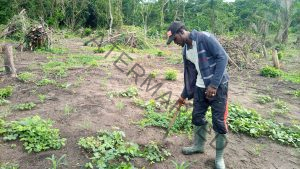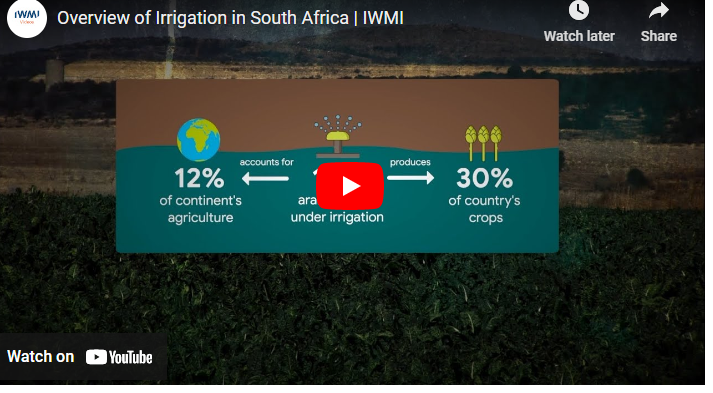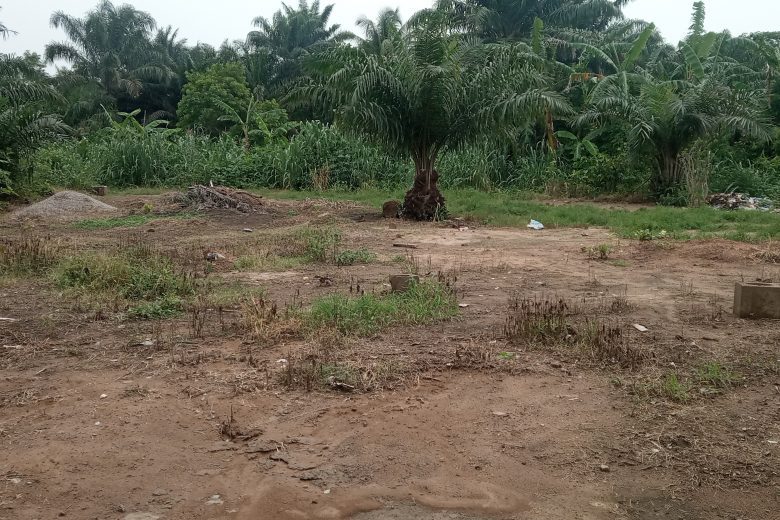Farming business or Agricultural activities in Gambia is predominantly practiced in the rural areas which are accompanied by its challenges. That’s not our focus of this guide, we will be giving you a step-by-step guide on How To Start Farming In Gambia.
To start a farming business in Gambia, you need a finance source, you need farming experience of any type with crop cultivation or livestock farming, and you need farmland to start with just to mention a few.
We will be taking you on a long ride on How To Start Farming In Gambia.
How To Start Farming In Gambia Step By Step Guide

Your desire to own a farm may seem out of reach if you didn’t grow up or have never worked on one. This is a legitimate cause for alarm. The reality is that farming is difficult, and running a farm as a business is even more difficult.
Read Also: How To Start Farming Business In Zimbabwe [Beginners Guide]
So here is a guide on how you can start your Farming career in Gambia;
Step 1: Get some hands-on experience in the field.
Skills have been passed down the generations to many modern-day farmers, particularly those operating big commercial farms in the Midwest.
When it comes to startup farms, this isn’t the case at all. There are a number of ways these farmers have learned how to farm, including apprenticeships with other farmers, attending a farm school, or putting in a lot of time and effort studying on their own.
If you want to learn how to be a farmer, don’t rely solely on YouTube videos or books. You need to get some hands-on training. In order to get the most out of your time on the farm, it’s best to pair up with an expert.
Read Also: How To Start Farming Business In Uganda With No Money [Step By Step]
So it comes as no surprise that we strongly urge that students learn from those who can teach them what they need to know and share tales from their own past, in order to better understand the often unanticipated hazards of working on a farm.
An old-timer or someone who’s been around for a while would be an excellent source of information about the dangers of farm work so that you can avoid making the same mistakes that they did and learn from their mistakes.
Starting a farm has a lot to teach you, not the least of which is how to keep your finances in order and come out on top. Always exercise caution when selecting a mentor because farmers can be both competent and incompetent, as with any vocation.
Step 2: Decide if you want to start a farm on a small scale or large scale.
Small-scale farming may be a better option for you if you’re more interested in learning about farming on your own terms. Then, you can try it on a smaller scale with a hobby farming.
Take a tiny patch and learn from the mistakes you make before you plant an entire acre of vegetables, for example. After some time, you’ll be able to widen your horizons.
Step 3: Do market research for demanded crops or livestock in your area
You should avoid jumping right in and starting a farm, even if you have a clear concept of what kind you want.
Imagine starting the tobacco farm in your home state that you’ve been planning for years.
Suppose you’re about to harvest your first batch of tobacco and find out that the Southern Area of the Gambia, not the Northern area is the primary market for the fruit.
Even if you find a way to deliver your goods to the Southern area at a reasonable price, what if you discover that This plant is not all the rage in the state?
Your business is over within one yield because you didn’t know where your target market was or what their values were.
A thorough market study would have revealed that passion fruit was not in demand in the Gambia.
You’d have had the option of switching to another in-demand crop or moving your farm to a new location. Regardless of your decision, you would have saved yourself a great deal of time and effort.
You must conduct market research.
In order to grow your business, you need to know who your customers are, where you’ll be selling your products, and how you’ll be doing so, all while taking your competitors into account. Learning how to conduct market research is a step you can’t skip.”
Even if you don’t have any official training in market research, you may learn about your clients, distribution routes, and how to start a farm by going out and doing your own study.
Find out more about the local market for a particular product if you’re already interested in purchasing it. Investigate your local food scene by visiting farmers’ markets, meeting other producers, and engaging with shoppers.
Alternatively, conduct a survey of farmers’ markets to discover whether there are any under-represented crops or goods.
Consider contacting a local extension office as well. A wide range of gardening and small-scale farming topics can be found through Extension programs in your area.
As part of your investigation, you should also consult your state’s agricultural department.
When it comes to farming, they’ll be able to supply you with the most recent news and help you determine what licenses you need to register for, as well as provide you with local information on food safety; pesticides; market access; and many other topics.
Step 4: Locate the best land for your farm
Following the selection of your crop, you’ll need to determine whether to purchase or lease your farmland.
There are advantages and disadvantages to purchasing land, both of which can be mitigated by careful consideration. It’s for this reason that many beginning farmers choose to lease property. It reduces financial risk and starts with less capital.
If you’re looking to lease farmland, look for landowners that are sitting on their land and not doing anything with it.
For those who do not intend to cultivate their acreage for agricultural purposes, agricultural tax credits or increased property value may be available to those who own arable land.
You have a few options if you can’t find a tenant for your land, including incubator farming, rooftop farming, and SPIN agriculture.
Buying a piece of land.
It’s not for everyone who wants to learn how to start a farm to buy a farm, but there are a few helpful tips to help you get started if that’s what you’re interested in. Ann Larkin Hanse, writing for Mother Earth News, recommends narrowing your search area by focusing on locations with off-farm work opportunities (or markets for your farm products and necessary farm support services).
Things to consider when looking for land
Before you find the right people to help you buy land, it’s worth familiarizing yourself with the things you’ll need to consider as you browse. At the very least this will include:
Your proximity to markets: Consider where you’re going to sell your products, or how you’re going to reach sales channels. If they’re hundreds of miles away, you’re going to struggle much more getting to market.
Often it’s easiest to start local and go from there. You will likely already have completed your market research by now and should have a pretty good idea of where your market is located. Use the above diagram to help you determine the “right” area to start your land search.
Access to water:
It’s important to make sure you have a steady supply of water, so be sure to ask plenty of questions and consider all of your options. How will you provide water for the plants, animals, and processing needs of your business?
If the land you are purchasing has a well, it is always good to obtain information about the well, such as type, depth, output, and age. You may also want a water quality report.
If the property is connected to a municipal water supply, knowing the price of the service can also help you determine the feasibility of a particular enterprise. If you have to pay per gallon or cubic foot, you might reconsider trout farming and try a camel dairy instead.
Soil quality:
As with water, high-quality soil is a must for most farmers. Ask the current owner for soil test results. Soil tests are often available through the local extension service and sellers should expect to provide test results.
Soil testing can be an important predictor of production capacity and expenses. Accurate predictions of fertilizer needs for specific crops can be made based on the test results, which break down to an actual dollar value when growing.
For livestock, different soil can even impact growth and health, sometimes requiring supplementation.
Facilities and Infrastructure:
Depending on the type of farm you want, you may also need different outbuildings. A produce stand or farm shop might require an up-front investment.
What about your livestock? Does the land include shelters for the animals you plan to raise? What about processing facilities? Different crops and animal products will require different processing and storage facilities.
Make sure to also think about things that aren’t directly related to the property. What sort of transportation and roads are available to and from the area you’re farming?
While you’ll want a balance of easy access and proximity to your sales markets, keep in mind that busy roads can have an impact on livestock, soil, and water quality.
Neighbors:
These can be a great resource, or a great hindrance, depending on. Do they produce farm goods? What are their production practices? Are they compatible with yours? If you plan on starting an organic vegetable farm, but your neighbors spray their Christmas tree plantation with harsh pesticides and herbicides several times a year, it could dramatically impact your success.
Operating a successful farming operation will happen a lot more easily if you have a good relationship with your neighbors. Farm manager Greg Heilers says, “Meet your neighbors. Offer to help your neighbors.
Be a good neighbor. Farming used to be so much more about community. It is so much easier to be successful as a farmer if you have even the slightest bit of support from your community.
“For example, if you’re a beef cattle farmer when a calf or cow or bull breaks loose and enters a neighbor’s field, do you want them toa .) keep your animal and never come asking to see if you had an animal get loose, b.) sell it off immediately and keep the truth from you, c.) come knocking and ask if you have any cattle or d.) recognize your cattle instantly and drive ’em back to your place for you?”
Step 5: Market and sell your products
In order to sell your agricultural products, you have a wide variety of options available. You can utilize a variety of avenues to market and sell your items, including farmers’ markets, e-commerce, and social media.
As long as there is adequate traffic in the area, a vegetable stand or farm shop on your land may be a viable choice.
Additionally, the CSA (Community Supported Agriculture) model, in which customers pay a set fee for a “share” of the season’s produce in exchange for regular food delivery, is a popular one.
Because you get paid at the start of the season, this arrangement is particularly popular because it can help reverse the notorious cash-flow challenges faced by most farms.
You may be able to join a local growers’ cooperative that allows you to sell your products under a single brand with the help of other local growers.
There are still lots of small, local health and natural food businesses with whom you could collaborate despite the fact that the supermarket age has made retail sales of agricultural items more challenging.
Begin by creating a marketing strategy. Your marketing plan will be part of your business plan when you’re writing it.
Conclusion
So, all you need to know to start farming in the Gambia has been taken into account here, if there is other information you need, you may drop your comments below.



